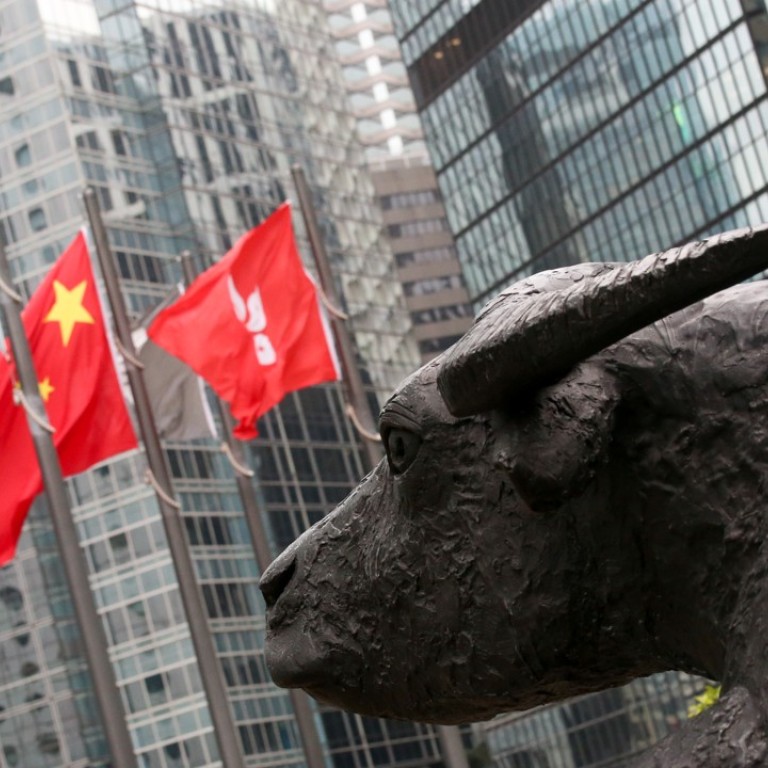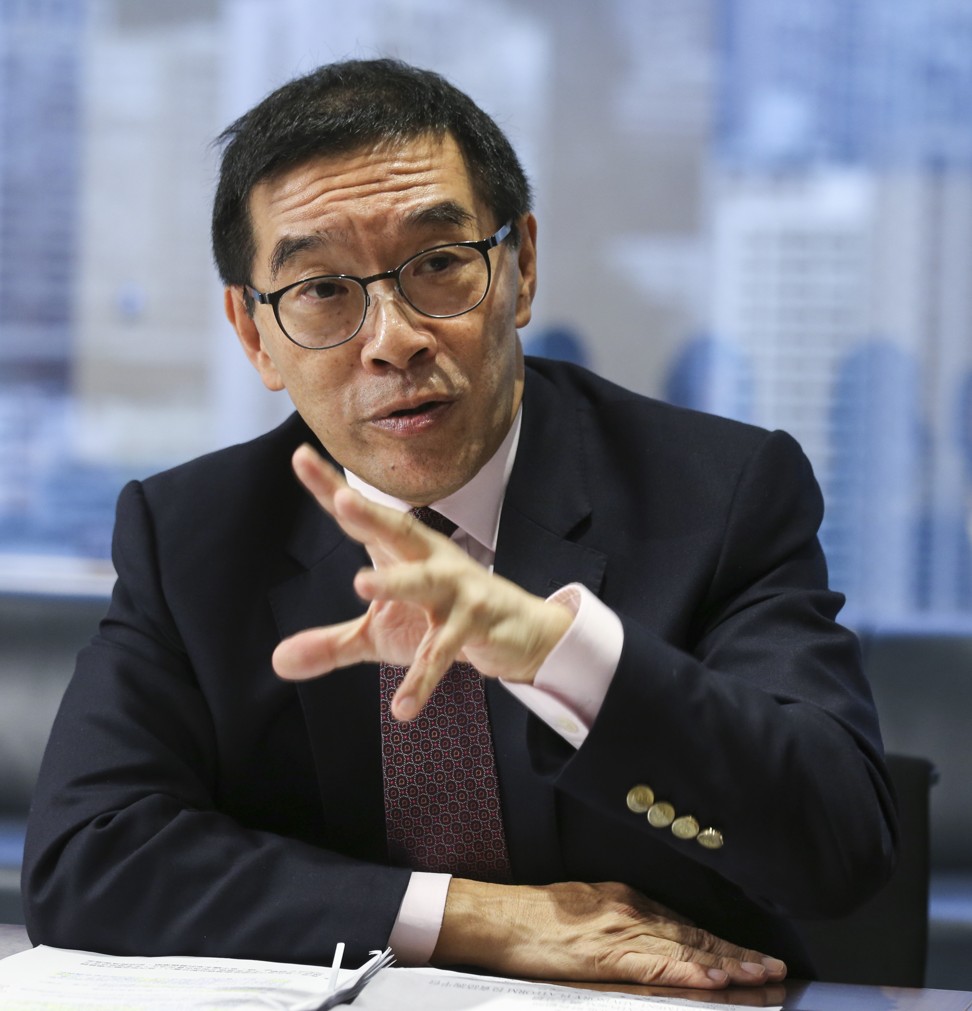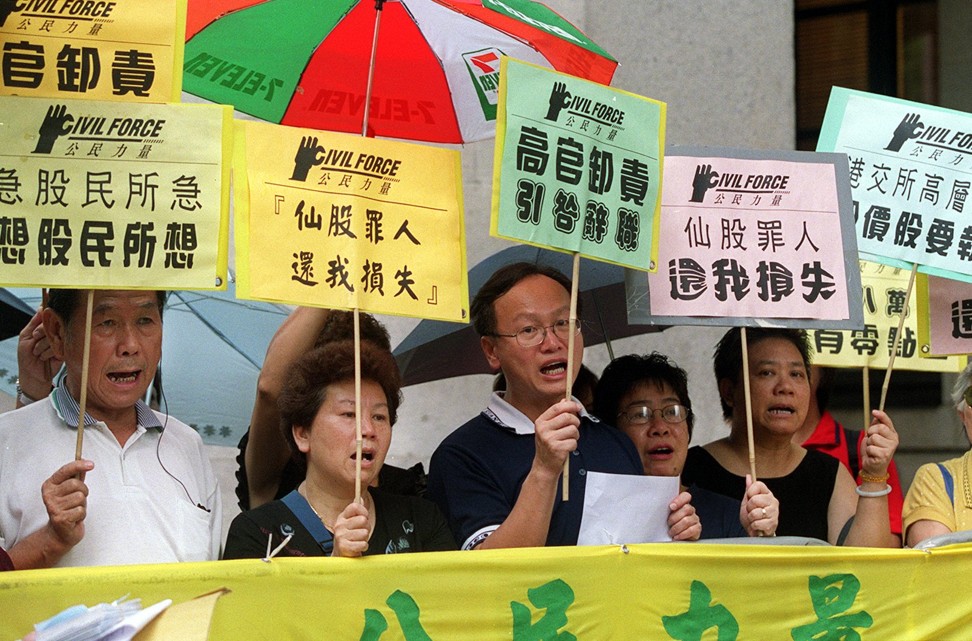
Exclusive | Shell companies are bad for Hong Kong’s market reputation, SFC chairman says
SFC Chairman Carlson Tong says Hong Kong is well served by a network of friendships underpinning the regulatory institutions.
Carlson Tong Ka-shing, chairman of Hong Kong’s Securities & Futures Commission (SFC) since October 2012, started out with a small accounting firm in Britain, earning just £10 per week, while training as a chartered accountant.
From humble beginnings, he rose to be KPMG Asia-Pacific chairman before retiring in 2011, handling big company audits and initial public offerings along the way. But before becoming the top enforcer for new listings in Hong Kong, Tong was warned by close friends not to take the job.
“The SFC is a regulator which does a lot of investigation. My friends warned me not to do it because this job may lead me to lose all my friends in the securities market,” he said in a recent interview with The Peak magazine, published by the South China Morning Post.

Tong, together with SFC’s chief executive Ashley Alder, oversees a team of nearly 900 staff enforcing rules in the equities market place. Three decades of experience as an accountant have, he said, instilled the ability to separate friendship and business.
“I have no regrets accepting the role as the SFC chairman and I did not lose my friends either. My friends understand it is the job of the SFC to do the investigation in the market and that does not affect our friendship,” he said. It’s not an easy balancing act.
Since the listing of China’s H-shares in Hong Kong in 1993, Chinese companies have come to represent more than half of total market capitalisation. Stock connects between Hong Kong and Shanghai in 2014, and Hong Kong and Shenzhen in 2016, have tied the markets together.
Meanwhile, the much-anticiapted Bond Connect scheme launched on July 3, giving international investors access to China’s US$ 9 trillion bond market via the Hong Kong stock exchange. He also hopes the primary connect will be launched to allow mainland Chinese people to subscribe to Hong Kong’s IPOs.

These changes added regulatory challenges. As the mainlanders’ trading now represent ten per cent of all turnover of Hong Kong market, it has put cross border regulation under the spotlight.
At present, 13 per cent of Hong Kong financial firms are Chinese owned, surpassing the US as the largest foreign owner of Hong Kong-based brokerages and fund houses. The SFC has to make sure these mainland investors understand prudent risk management in running their Hong Kong financial firms.
During a recent meeting between the SFC and China Securities Regulatory Commission (CSRC) chairman Liu Shiyu, the Chinese regulator expressed concern about so-called “con stocks” (千股), which are penny stocks that go through repeated splits to raise more funds from investors, even though the company does not have any profitable business.
These schemes have caught many mainland investors unaware, resulting in lost investments. Tong has said he wants to crack down on such stocks and activities.
“The SFC is opposed to these activities,” Tong said. “Stock listings should be aimed at raising funds to expand businesses. Shell companies should not be listed as they are bad for the reputation of the Hong Kong market.”
Cyber crime is another focus, and the commission has urged brokers to step up cybersecurity measures. Such issues are no longer a matter for academic discussion.
So far, there have been 27 cyberattacks on 12 firms in which trades were being executed by a hacker in the name of the firm. With investors now trading stocks via computer, or even smart phone, cybersecurity is now of paramount importance and the SFC has proposed measures to deal with it, Tong said.
One of the big questions of the day is how Hong Kong should regulate its financial industry. “I think each model has its own benefit. The Hong Kong model of having different gatekeepers works well as long as we have close communication to avoid any gaps in between,” Tong said. Maintaining relationships becomes critically important, yet that may not always work.
The SFC and the HKEX last year joined for a controversial consultation on listing reforms that would allow the SFC to take a more upfront role in approving new listing and setting policies.
The consultation lasted from June to November 2016 and drew 8500 submissions from brokers, listed companies and financial professionals – it was voted down by 94 per cent of respondents. The consultation has led some analysts to call this a turf war between the SFC and the HKEX, but Tong said the whole exercise aimed at improving market quality.
“There was no power struggle between the SFC and the HKEX. The SFC is always the ultimate regulator in the securities market in Hong Kong and we regulate the HKEX, which has a public duty as it has monopoly status in stock trading in Hong Kong,” he said. “On the other hand, HKEX and the SFC also work as partners to develop the market to attract more international listings and to capture the opportunities arising from the Belt and Road Initiatives. We work together closely,” he said.
Tong said he has breakfast and lunch with HKEX Chairman Chow Chung-kong at the Hong Kong Club all the time (he refers to the club their “canteen”).
HKEX chief executive Charles Li Xiaojia and Alder also have regulator meetings. Tong is a member of the advisory body of the Hong kong Monetary Authority (HKMA), while he also regularly meets with HKMA chief executive Norman Chan.
He and the Insurance Authority’s chairman Moses Cheng Mo-chi have been long-term friends as they were both former chairman of listing committee at different period of time. “We are all close friends and we work closely on regulation in Hong Kong,” he said.
In the end, Hong Kong’s financial development requires suitable regulation, according to Tong. “Development unaccompanied by suitable regulation will not be sustainable.”

